#Jason Schneiderman
Text
Dramaturgy
Jason Schneiderman
I’m writing a play about a Kommandant at Auschwitz
who recognizes one of the Jewish prisoners
as a famous poet, and as the Kommandant
has poetic aspirations himself, he pulls the prisoner
away from the work detail to receive poetry lessons
from the celebrated Jewish writer. The bulk of the play
is their discussions of poetry, which the poet
is initially reluctant to have, the power differential
being so stark, and though he flatters the Kommandant
at first, when he begins to see his Nazi pupil’s
true devotion to the art, as well as his untrained
and untapped talent, he goes to work in earnest,
and at times they are both simply lovers
of the German language, though the truth of their
situation often interrupts. In the last act,
the Kommandant is on trial for his crimes,
and in the days before he is to be executed,
he begs the poet to publish his work under his own name—
the Nazi’s writing under the Jew’s name—
because as a Nazi, he feels his own name is disgraced,
but he believes so strongly in poetry that it matters
more to him that his work survive than that anyone
know it was his work. The play is pulled entirely
from my imagination, a careful rereading
of Simon Wiesenthal’s The Sunflower, and the poetic ideas
of Rilke and Goethe, with a smattering of Nietzsche.
In readings of the play, the Kommandant
has seemed more noble than I had intended—in many ways,
more noble than the Jew, because the Jew is suffering
by no fault of his own, while the Kommandant is tortured
by conscience, and driven by a sense of poetic calling
that separates him from the Germans around him.
On the morning of the third workshop reading, I watched
a video of two Russians on an ice-dancing reality show
performing as Jews in Auschwitz. I was sickened,
even though I couldn’t follow the pantomimed action,
and I wondered if I was producing Holocaust kitsch myself,
if my work was as disgusting as theirs, though I knew
if I asked any of my team, they would reassure me
that I am doing important work that rises to the level
of art. Last night, during a break in the workshop of the play,
I told the story of how my grandmother, upon learning
that her entire family had died in the camps,
had burned the photo albums of everyone she had loved.
I have told that story many, many times,
without feeling much more than regret, or sympathy,
but this time I broke down crying, and I couldn’t stop.
Everyone at the table came to comfort me,
and I felt ridiculous, but the only thing I could say was,
“It’s time for us to go. This isn’t a place we can live anymore.”
I left the studio embarrassed, and later that day,
I resigned from the production. I don’t think they believed
that I was serious, and they’ll expect me to show up
at the next table reading. I won’t. The play will go on
though I can have nothing more to do with it.
This morning, after taking a shirt off the hanger,
I looked in the mirror and realized I hadn’t put it on.
Without thinking, I had started packing a bag.
(x)
#international holocaust memorial day was two days ago#and this about sums it up#“it's time for us to go. this isn't a place we can live anymore.”#thank you jason schneiderman#(my great-grandmother had the experience of finding out the family she left behind in Europe had all been murdered)#words#poetry#jason schneiderman#jewish things
14 notes
·
View notes
Text




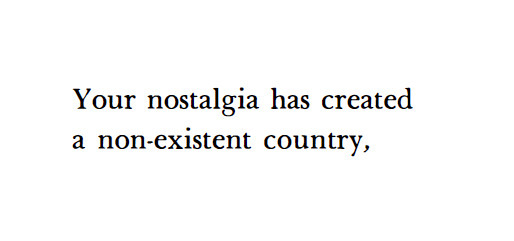


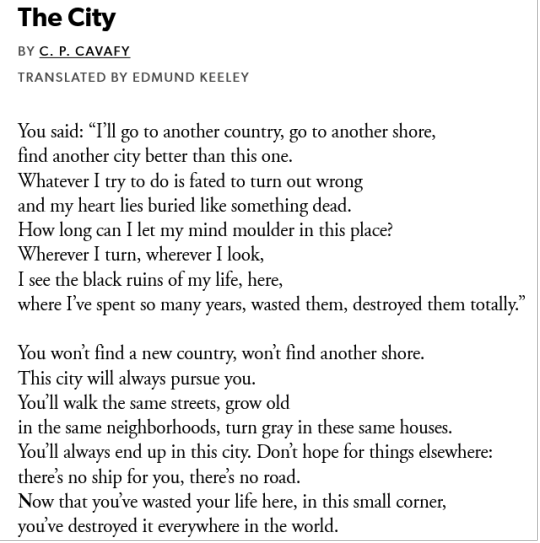
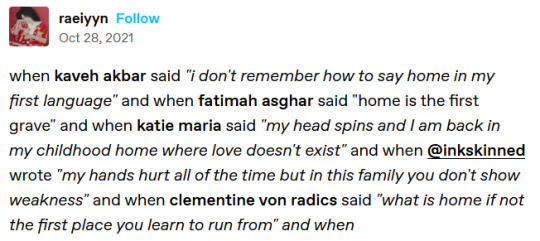

end of beginning, djo / the sea, john banville / homesick, ashley wade parker / @catilinas / the return of the exile, george seferis (tr. edmund keeley) / akira asakura / blood and soil, jason schneiderman / the city, c. p. cavafy / @raeiyyn / alexander ladanivskyy
#web weaving#parallels#literature#poetry#photography#djo#lyrics#john banville#ashley wade parker#george seferis#akira asakura#jason schneiderman#c p cavafy#alexander ladanivskyy#city#hometown#homesick#nostalgia#angelic.txt#angelic.png#my posts#id in alt
139 notes
·
View notes
Text
Is it so wrong to want poetry to be counterproductive? To quite literally—to quote Auden—to make nothing happen? I’ve scoffed at those who see poetry as somehow revolutionary in the Marxist sense, at those who see poetry as a way out of capitalism or class or privilege or entitlement (there is not a way out of these things, only a reckoning with them). I see the academy as the greatest patron that poetry has ever had, and yet it requires me to teach an awful lot of composition classes. How did my love of poetry lead me to spending my days telling students about topic sentences and the differences between citation styles? Today we are told over and over that all poetry is political. But these voices don’t mean the word “political” the way that Nothingism does. Before the popularized slogan was “The personal is political,” the second wave feminist slogan was iterated as “The political is personal.” This tiny distinction is everything to a Nothingist. Funding for health care, voting rights, gun control, rent control, free college tuition—these are all political concerns that are immensely personal—how could they not be? But this is not the same as saying that everything is political. Isn’t the point of free tuition that everyone can make a personal choice as to whether or not college is right for them? Isn’t the point of fighting for reproductive rights that you can make personal choices without juridical intrusion? Is not the search for an ideal politics, a search for the politics that would free us to enjoy the personal? For the Nothingist, politics must have an outside in order for there to be such a thing as politics—the Nothingist says that if everything is politics, then nothing is politics. When I read, my body is expending the energy I generated by eating a meal; that does not make reading a form of eating. Nothingism votes, but a vote is not a poem. Nothingism demands that we be a part-time everything.
What Nothingism bemoans, of late—what I am bemoaning—is the end of reflection. The end of a process that culminates in a final product. Nothingism resists the endless “here’s where I am now” that properly belongs to intimate spaces, rather than public ones. Nothingism insists on intimacy as the opposite of “public”. When we complain of the constant campaign in our politics, wishing for a government that would govern with the best interest of all its citizens at heart, we are wishing for reflection. When we bemoan the endless hunger for non-fiction that seems to crowd out fiction, we are wishing for imagination. When we bemoan the “poetry” that has been prefixed with “insta,” we are bemoaning instancy itself—the brief snippets of language, offering repetitive iterations of shallow self-adoration that begin with the premise of radically empowered independence that in turn lead to a ferocious rejection of the painful realities of interdependence. We must retreat and return, but the retreat must be to a productive space. “Scrolling” has become a metaphor for how we read online, the “page” endlessly opening up onto the “bottomless trough”—but what of the forgotten scrolls, the rolled-up papyrii in Alexandria? The language of writing is endlessly re-purposed for the medium that devalues it, the value desperate not for articles or poems or interviews, but “content.” Contemplation is a name I offer for poetry. Privacy is a name I offer for poetry. Nothingism is a name I offer for poetry.
—Jason Schneiderman, from “Nothingism: a Poetry Manifesto”
#quotations#jason schneiderman#poetry#poetics#nothingism#manifesto#this piece pairs well#with the ross gay piece 'out of time' i just posted#i don't necessarily agree with 100% of it but overall it resonated#especially these two paragraphs
15 notes
·
View notes
Text
We used to make a big deal of it—how the speaker is not the author,
rolling our eyes whenever someone made such a rookie mistake,
before we poet-splained how even the so-called confessionals
aren’t all that confessional, like try getting some autobiography
out of a Plath poem! (Hint: her father wasn’t a statue or a nazi
or even footwear.) It was a kind of foundational gospel, but
the distinction used to get us into all sorts of odd situations,
like the half hour discussion I once led that kept coming back
to how the boyfriend in the poem seemed to be less into the speaker
in the poem than the speaker in the poem seemed to realize,
and the class consensus was that the speaker (in the poem)
really needed to break up with the boyfriend (in the poem),
which wasn’t really a craft concern, but we all played our parts,
and it went much better than the conference where I realized
that the star-crossed lovers in a poem were only star crossed
because the speaker in the poem was a senior in college
and the president of a sorority that would never accept her dating
a freshman (in the poem) from her sorority’s corresponding
fraternity (in the poem). Again, not quite a craft concern,
and I should probably have been more open to the obstacle
as an obstacle, but come on people, a three year age gap
when everyone is past the age of consent? Just date the guy.
These days I think you’re supposed to assume that the speaker
is the author, and that it would be offensive in a certain way,
to assume a voice that is not your own, even though persona
abounds, and just the other day I heard a famous poet scoff,
when asked a question after a reading, at the assumption
that everything in his poems is true, though he’d be the first
to challenge a poet going too far outside of their own experience.
I felt bad for the questioner, but I’m glad the famous poet
stood up for persona, because to be honest, I miss the distinction,
the way it built a little wall between me and the reader,
the way the poem could be ninety percent true, and that
the ten percent imaginary was just enough to keep me safe,
the way it made me feel like an actor, nude on stage,
but lit in such a way that nothing could be clearly seen,
except in the most flattering shadows and outlines.
—Jason Schneiderman, “The Speaker in this Poem” (The Night Heron Barks, Fall 2021)
#poetry#jason schneiderman#poetics#persona#the night heron barks#recently read#i love this poem so much
3 notes
·
View notes
Text
"…which is why heaven
is an endless, cozy warehouse, where nothing you loved is gone,
where you are whole because you get everything back, and by everything,
I mean you."
-Jason Schneiderman
#Jason Schneiderman#reading#literature#quotes#life#life quotes#quote#world#random beautiful stuff that i read#random quotes#stumbling on random beautiful quotes
0 notes
Text










@heavensghost // Erin Moran, "940 Main Street" // Jason Schneiderman, "Little Red Riding Wolf" // @mah_hirano on tw // Adrienne Rich, "Planetarium" // Richard Siken, Editor's Pages: Black Telephone // Molly McCully Brown, Places I've Taken my Body: Essays // @loputyn // Mason O'Hern, "You Are Not Just Anything" // Friedrich Nietzsche, Good and Evil
#theme: a woman in the shape of a monster#web weaving#web weave#webs#poetry#prose#aesthetic#prose poetry#literature#art#book quotes#novels#books#novel quotes#essays#quotes#words#writing#inspo#compilation#parallels#on womanhood#on femininity#femininity#womanhood#illustration#richard siken#friedrich nietzsche#nietzche#poems
3K notes
·
View notes
Text





“blood and soil” by jason schneiderman
#will graham#hannibal lecter#hannibal#hannibal nbc#nbc hannibal#hannibal edit#hannibaledits#hannigram#hannigram edit#hannigramedit#hannibal comparatives#hannibal comparisons#the poetic clown
488 notes
·
View notes
Text


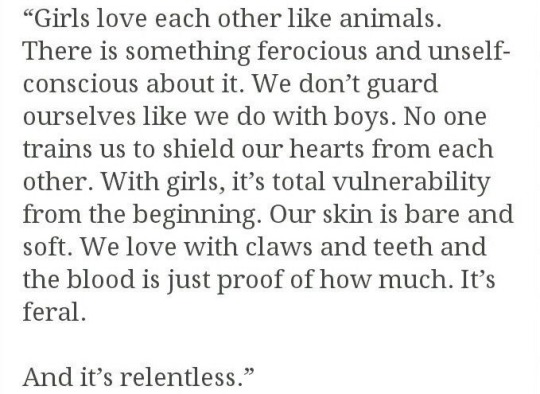

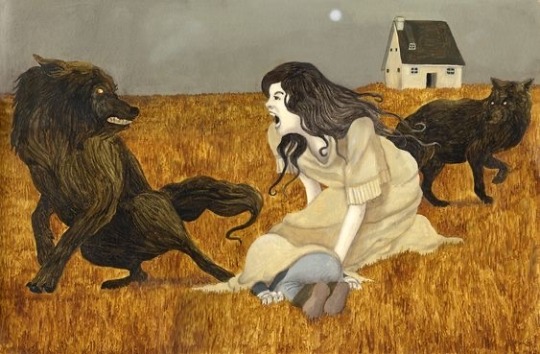

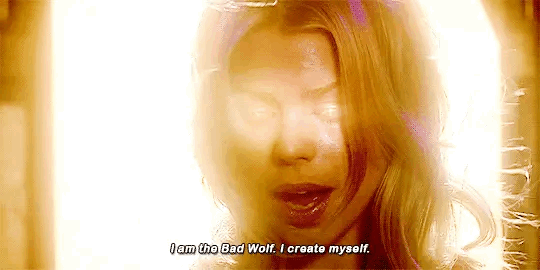



Little Red Riding Wolf - Jason Schneiderman / x / Black Iris - Leah Raeder / Gleinpir - Walton Ford / x / 940 Main Street - Erin Moran / Doctor Who s1e13 / Ghismomda With The Heart Of Guiscardo - Bernardino Mei / Friends Forever - Wayne McKenzie / The Beast - Frank Bidart
#web weaving#poetry#women#poem#doctor who#intertextuality#multimedia#wolf#wolves#bad wolf#rose tyler#girlhood#womanhood#renaissance art#compilation#literature#tv series#quotes#words#spilled ink#artist appreciation#body posititivity#feral women#feminine rage#female rage#divine feminine#female hysteria#red wine#wlw
388 notes
·
View notes
Text

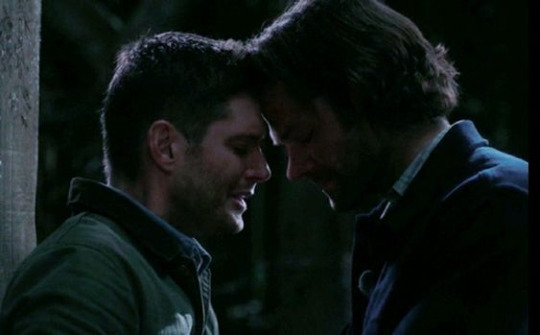

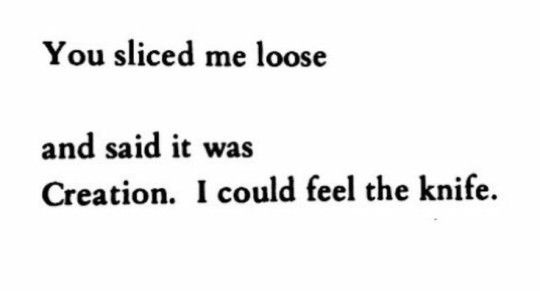
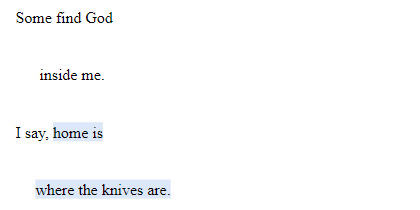




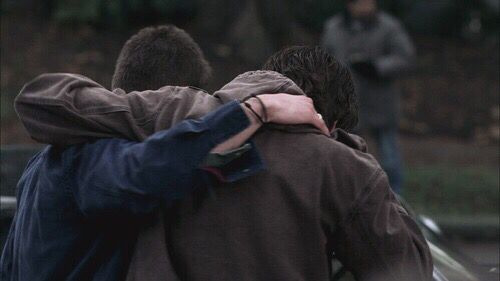

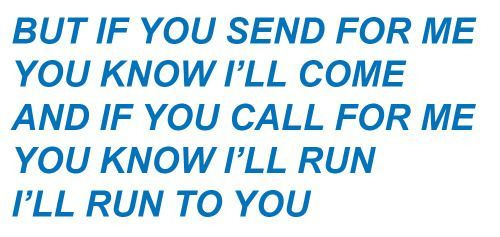



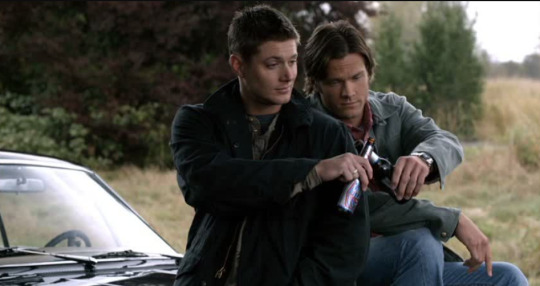
Virgil // Supernatural (2005-2020) "Carry On," dir. Robert Singer // Emily Palermo (via @metamorphesque) // Margaret Atwood Selected Poems: 1965-1975 // Jason Schneiderman Blood and Soil // Supernatural (2005-2020) cr. Eric Kripke // Terry Pratchett Thief of Time // The Mountain Goats Sax Rohmer #1 // Adonis (tr. Khaled Mattawa) Selected Poems // Supernatural (2005-2020) cr. Eric Kripke // Ernest Hemingway The Garden of Eden // pinterest // Supernatural (2005-2020), "Pilot" dir. David Nutter // Joan Kierney The Tragic Hero Upon Reaching the End of the Script Realizes He Has Been Dead the Whole Time // Hans Christian Anderson // Supernatural (2005-2020) cr. Eric Kripke
#on self#on love#on family#on brothers#supernatural#sam and dean#sam winchester#dean winchester#spn#web weave#web weaving#poetry parallels#poetry compilation#spilled poetry#spilled thoughts#words#poem#spilled ink#poetry#dark academia#dark academia poetry#writing#dark academia quote#virgil#emily palermo#margaret atwood#jason schneiderman#terry pratchett#the mountain goats#adonis
120 notes
·
View notes
Text









girls, wolves, rage.
940 main street, erin moran // not a girl, ashe vernon // X, quote by clarice lispector // cop car, mitski // a prayer, tathève simonyan // little red riding wolf, jason schneiderman // fury, yevgeny yevtushenko // for women who are difficult to love, warsan shire // little red riding hood addresses the next wolf, brenna twohy
#my creations#web weaving#web weave#feminine rage#female rage#uhhhh i dunno how to tag this#mitski cop car#ok that’s good
29 notes
·
View notes
Text














I BRING LIFE: (EDITS, 10.)
churching, kristin chang. / little red riding wolf, jason schneiderman. / prelude to becoming holy, brynne rebele-henry. / the chronology of water: a memoir, lidia yuknavitch. / 940 main street, erin moran. / unknown. / parting of the ways, r.ussell t. davis.
#i bring life.#introspection.#aesthetic.#on being a girl ... on being a god ... on being both and neither at the same time#no one is awake but#i've been thinking about this for ages
11 notes
·
View notes
Text










// yrsa daley-ward - bones // the mountain goats - make you suffer // margaret atwood - the blind assassin // richard siken - crush // john bradshaw - healing the shame that binds you // cj hauser - the crane wife // anne carson - red doc // tathève simonyan - a prayer // yves olade - arcana // the mountain goats - make you suffer // yves olade - haruspice // jason schneiderman - blood and soil // carol rifka brunt - tell the wolves i'm home // lucille clifton - won't you celebrate with me // crywank - song for a guilty sadist // yves olade - belovéd // the front bottoms - funny you should ask // frank bidart - the war of vaslav nijinksky // yves olade - belovéd // the mountain goats - make you suffer //
23 notes
·
View notes
Text

(ID: Pic 1: "sometimes to be only a wolf, / sometimes to be only a little girl."
Pic 2: A pair of hands holding a flower crown.
Pic 3: A young girl whose hand is held by and adult offscreen. She is being guided forward while still looking back at a blurry figure dressed in white.
Pic 4: "She looked like a religious icon, like somebody you'd sacrifice yourself for." End ID.)
Pic 1: Little Red Riding Wolf by Jason Schneiderman
Pic 4: Throne of Glass by Sarah J. Mass
#shades of magic#aesthetic#moodboard#som kosika#couldn't find a series name for pic 3 and it irks me
1 note
·
View note
Quote
I think
my eyes are like that now, leaving you.
Jason Schneiderman, from “Sita”
63 notes
·
View notes
Text
"I promise to cherish your love in that well-lit infinity of forever."
-Jason Schneiderman
#Jason Schneiderman#reading#literature#quotes#life#life quotes#quote#world#random beautiful stuff that i read#random quotes#stumbling on random beautiful quotes
0 notes
